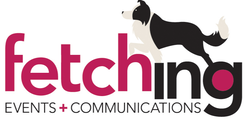|
Over nine weeks ago, when the world changed, organisations rushed to move their events online - and did a great job to do this. However in the scramble to adjust, many simple considerations have been overlooked. Now is the time to stop, take stock and review how you are managing your online events. Now is the time to closely look at your events, your format and any tweaks you can make to continue to strengthen your engagement with your attendees. Each online session should be a chance to improve, review what you have done and see what tweaks you can make for next time. If you have been running online events, or are considering it, start with these five top tips to successfully engage with your audience:
Each online event provides an opportunity to improve. Take the time to look at what you have already done, or start to think about what you can do in the future. Re-watch your recordings and see what you or your panellists could improve on regarding your presentation delivery (eg looking at the camera lens, talking with a smile). Online events are here to stay, even when restrictions ease. Make the most of it and take this opportunity to development strong engagement online. If you need help with your online events, contact Fetching Events & Communications. We have an Event Online Training Package to help you with your online engagement through running your own online events. AuthorGeorgie Stayches is Founder and Chief Engagement Officer of Fetching Events & Communications, a boutique agency specialising in event management, communications and volunteer management.
2 Comments
Jeck
24/7/2023 11:21:56 am
I'm grateful for the practical advice you've shared in this article. It's truly actionable. <a href="https://www.digistore24.com/redir/299134/Jeck01/" target="_blank">click here</a> for additional details.
Reply
Jasmin
13/11/2023 05:42:42 pm
Your post offers practical tips for optimizing your website or online presence for search engines, increasing visibility and attracting more potential customers. It's a way to drive organic traffic and make money. To delve deeper, <a href="https://singingfiles.com/show.php?l=0&u=1790388&id=56752" target="_blank">click here</a>.
Reply
Leave a Reply. |


 RSS Feed
RSS Feed